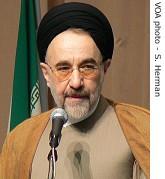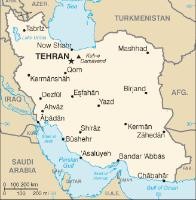On Tuesday, the Thai military seized Bangkok, ousting controversial leader Thaksin Shinawatra and seizing control of the nation. The lack of details has delayed strong international reaction. John Bolton, the U.S. ambassador to the United Nations, released a cautious statement. “We think it’s important,” he said, “that we have peace in the streets in Bangkok, and that their constitutional processes be upheld.” The statement is vague for a reason. The United States has interests in both embracing and condemning the coup. In the final analysis, however, it has a greater interest in condemning the coup and returning Thaksin to power. […]
U.S. Foreign Policy Archive
Free Newsletter

It was no more than coincidence that former Iranian President Mohammad Khatami arrived in the United States Friday, one day after the U.N.-imposed deadline on his country to halt its uranium enrichment program, according to U.S. officials. The United States granted Khatami an entry visa despite rising tension between Washington and Tehran over what the Bush administration considers Iranian efforts to develop nuclear weapons because — a State Department spokesman said Thursday — there is “no political substance to his visit.” But observers said it was possible to read too little into the former president’s trip as well as too […]

As a fragile ceasefire teeters in Lebanon, a broad consensus among Western analysts has emerged with the view that the Islamic Republic of Iran is the main regional victor of the war between Israel and Hezbollah. Certainly the fact that Hezbollah survived Israel’s one-month assault has brought strategic and public relations dividends to Iran (and to a lesser extent Syria), given that the Islamic Republic is Hezbollah’s major financial and military backer. Yet what is the nature of this declared Iranian success and what are its implications? If Iran has enhanced its strategic viability and increased its regional popularity, then […]
